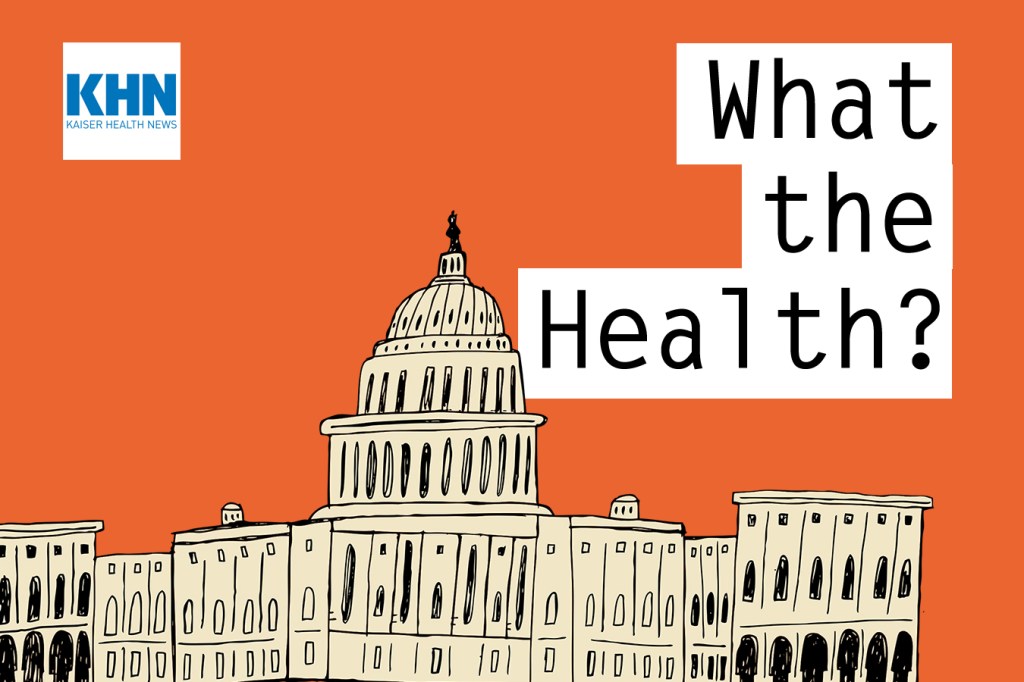Can’t see the audio player? Click here to listen on SoundCloud. You can also listen on Spotify, Apple Podcasts, Stitcher, Pocket Casts or wherever you listen to podcasts.
Click here for a transcript of the episode.
As covid-19 cases in the U.S. continue to rise, the Biden administration is countering with new strategies. The latest efforts include preparing for vaccine boosters starting this fall, requiring that nursing home workers be vaccinated and pushing back against state bans on mask mandates in schools.
Meanwhile, the U.S. House is returning early from its summer break to begin work on a planned $3.5 trillion budget bill that will address a long list of health issues, including changes to Medicare and Medicaid, extending the Affordable Care Act subsidies and lowering prescription drug prices.
This week’s panelists are Julie Rovner of KHN, Alice Miranda Ollstein of Politico, Margot Sanger-Katz of The New York Times and Kimberly Leonard of Business Insider.
Among the takeaways from this week’s episode:
- Democratic House members from the moderate and progressive wings are facing off over the fate of two key initiatives: the bipartisan infrastructure bill and the $3.5 trillion reconciliation package, which includes President Joe Biden’s priorities for health care, climate change and other matters. Moderates are pushing for the House to vote on the traditional infrastructure bill first and get it to the president’s desk, but progressives are insisting it must go forward in tandem with the more controversial reconciliation plan.
- House Speaker Nancy Pelosi seems confident she can wrestle her caucus into moving forward without losing support from either wing.
- The reconciliation package, while massive, is still very ambiguous. Most of the proposals and ways to pay for them are being negotiated. That makes it hard for lawmakers to endorse yet. The process is reminiscent of the difficult campaign to get the Affordable Care Act across the finish line in 2009 or the Republican effort to repeal and replace the ACA in 2017, when members of Congress did not have a lot of details about what might replace it.
- The Biden administration’s call for booster shots for people who have been vaccinated against covid has generated some disagreement among public health experts. Some argue that the need in the U.S. is not yet great and that those shots should be sent to countries in greater need, where a new variant could develop if too many people contract covid. But the administration and its supporters argue it is better to be ahead of the virus, rather than try to tamp down a resurgence among the vaccinated later.
- To push the nation’s inoculation efforts, Biden on Wednesday called for nursing homes to require staff members to be vaccinated or lose Medicare and Medicaid funding. Some other industries — especially those where risks are great — have already mandated vaccinations on their own.
- The president also pushed back in his comments this week against conservative governors who insist schools may not require students to wear masks. Public health officials have said masking will help prevent kids from getting sick, especially since many are too young to get the shots and the delta variant appears to be more virulent than previous versions of the virus. In some states that start school early, thousands of children already have been forced to quarantine. The administration, educators and public health officials are concerned that rampant spread could force many schools to resume remote learning.
- Nonetheless, some Republican state officials, including Florida Gov. Ron DeSantis and Texas Gov. Greg Abbott, are digging in their heels about mandates. It’s a tricky political issue for them because the delta variant is hitting Southern states the hardest.
- Medicare Advantage plans have been growing in popularity, often because they offer benefits not available in traditional Medicare coverage. But if Democrats succeed in their efforts to beef up standard Medicare with dental, vision and hearing benefits, it could affect the business model of the Medicare Advantage plans.
Plus, for extra credit, the panelists recommend their favorite health policy stories of the week they think you should read, too:
Julie Rovner: KHN’s “Federal Vaccine Program Hasn’t Helped Those Whose Lives Were Altered by Covid Shot,” by Arthur Allen.
Margot Sanger-Katz: The Atlantic’s “How the Pandemic Now Ends,” by Ed Yong, and New York magazine’s “Don’t Panic, but Breakthrough Cases May Be a Bigger Problem Than You’ve Been Told,” by David Wallace-Wells.
Alice Ollstein: The New Republic’s “Here’s a Terrible New Idea: Making the Unvaccinated Pay Higher Insurance Premiums,” by Natalie Shure.
Kimberly Leonard: Business Insider’s “Amazon, Investment Banks, and Even Big Tobacco Are Spending Millions of Dollars to Try to Get Favorable Marijuana Laws,” by Kimberly Leonard and Jeremy Berke.
To hear all our podcasts, click here.
And subscribe to KHN’s What the Health? on Spotify, Apple Podcasts, Stitcher, Pocket Casts or wherever you listen to podcasts.
This story was produced by KHN (Kaiser Health News), a national newsroom that produces in-depth journalism about health issues. Together with Policy Analysis and Polling, KHN is one of the three major operating programs at KFF (Kaiser Family Foundation). KFF is an endowed nonprofit organization providing information on health issues to the nation.
